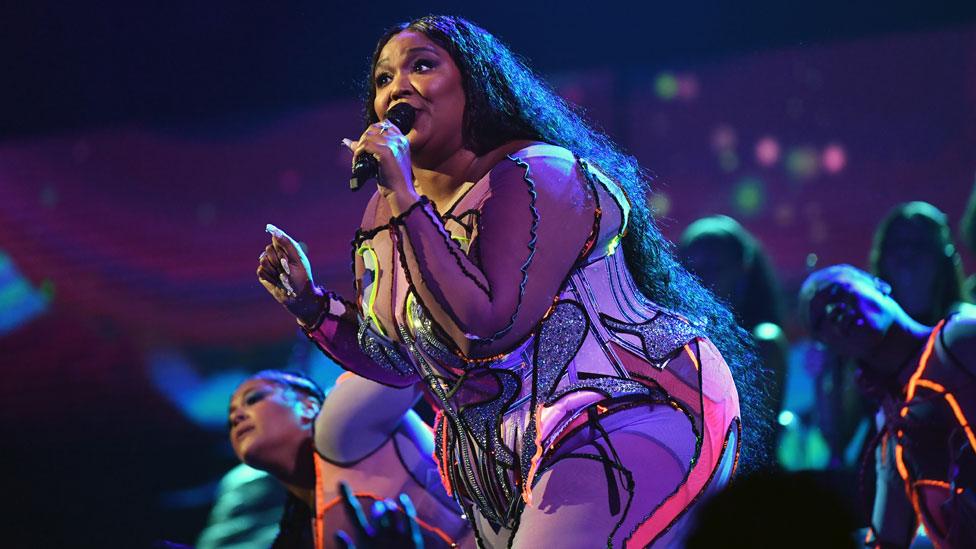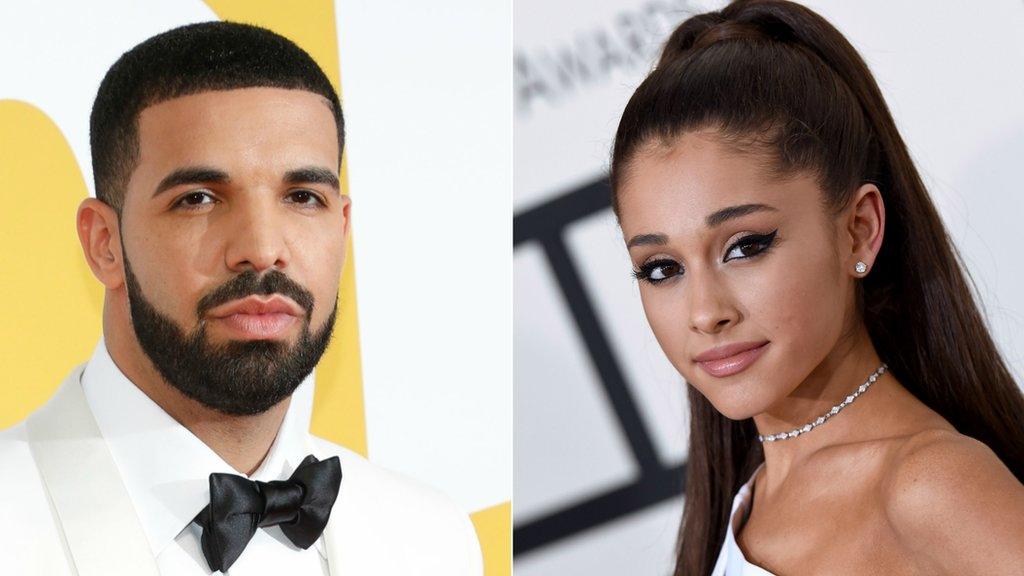UK music industry urged to drop 'offensive' term BAME
- Published

The term BAME relates to Black, Asian and Minority Ethnic artists
The British music industry should drop the "outdated and offensive" term BAME, the body representing record labels and musicians has urged.
A taskforce set up by UK Music said the widely-used term for black, Asian and minority ethnic people was seen by many as "misleading and inappropriate".
Taskforce chairman and record shop owner Ammo Talwar, described it as a "careless catch-all acronym".
The move comes ahead of the launch of UK Music's diversity study.
Published later this month, the report will outline the state of workplace diversity in the industry, and publish a 10-point plan on how to make the scene more inclusive.
This summer, the streaming giants Spotify, as well as Republic Records, decided to stop using the word "urban" to describe music of black origin; while the Grammys did the same in their awards categories.
'Unstoppable momentum'
"There is now an unstoppable momentum for change at pace to rapidly improve diversity in the music business and across society," Mr Talwar said in a statement.
"One key change we want to see is the end of the use of a term which is outdated and offensive to many people from black, Asian and other diverse communities.
"It is a term that is often used in reports and campaigns, but it's not relevant in today's modern music industry and jars with many in diverse communities."

Ammo Talwar is chairing UK Music's taskforce looking into issues around diversity
Mr Talwar added that he and many others now want to see the acronym "consigned to the dustbin of history", and suggested the use of "more specific" language instead.
"It's a key step on the path to an inclusive, welcoming culture that we all want to foster," he continued.
"If there is a need to refer to people's heritage, it is far better to use a word like 'black', 'Asian' or something more specific, rather than a careless catch-all acronym."
'Dig deeper'
There has been increased scrutiny of diversity in the music industry as in all areas of society following the Black Lives Matter protests in the wake of the death of George Floyd.
In September, the newly-formed Black Music Coalition (BMC) set out its mission to "protect, promote and advance the interests and views of black professionals within the UK music industry".
Its chair Sheryl Nwosu told the BBC on Thursday that the new organisation "fully supports" the end of the term BAME.

The Black Music Coalition's executive committee: (Left to right) Sheryl Nwosu, Afryea Henry-Fontaine, Komali Scott-Jones, Lucy Francis and Char Grant
"Far too often, BAME initiatives have fallen short of understanding the specific needs or support that each ethnic group require," said Miss Nwosu. "In fact, it has served to amalgamate those needs as if a blanket approach will suffice.
"We implore all companies to dig deeper and listen to the varied underrepresented groups within their business so that bespoke support and programs can be devised in order to truly establish equity for all across the industry.
"The BMC are working closely with music industry companies across the board to support further development for the betterment of black executives, and we look forward to seeing action taken from within these organisations as well as implementing these important directives from UK Music."
UK Music's members include the BPI, which represents record labels; the Musicians' Union; the Music Publishers Association; rights body PRS For Music; and the UK Live Music Group.

Follow us on Facebook, external, or on Twitter @BBCNewsEnts, external. If you have a story suggestion email entertainment.news@bbc.co.uk, external.
- Published30 June 2020

- Published10 June 2020

- Published8 June 2020
